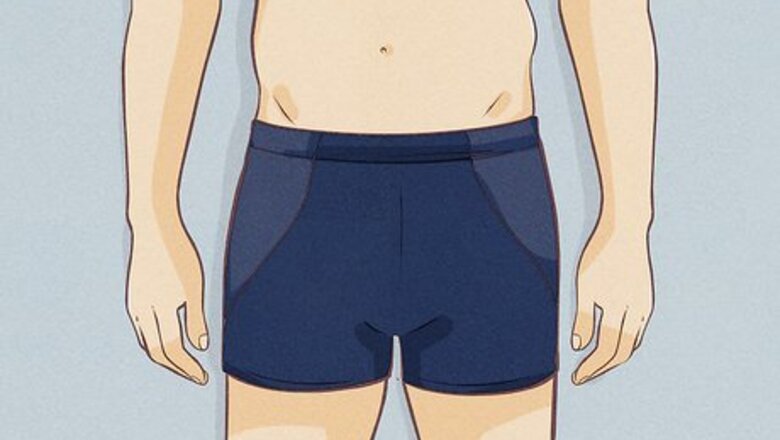
views
Identifying What You Want to Buy
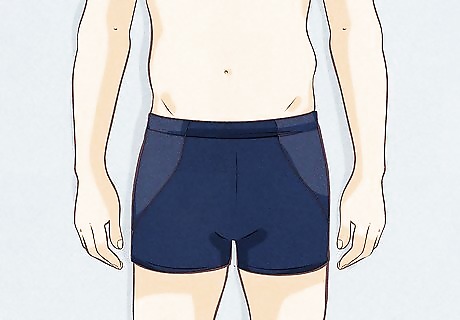
Determine how you intend to use the swimsuit. If you are buying a suit for racing competitively, you'll need a different suit than you would if you're just swimming for fun. The more leg movement (i.e., actual swimming) you intend to do, the less fabric you should have on your swimsuit.
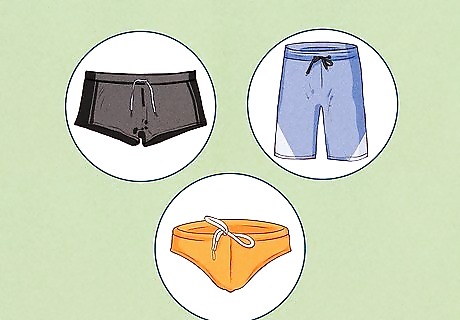
Decide what sort of style you want to adopt. If you want to really impress, think carefully about your build and research what sort of swimsuit looks best on someone with your body type. Different body types will look better with different colors, suit lengths, and patterns. If you are buying a men's swimsuit for a pool party with coworkers but still want to look professional, choose something in a dark color – either striped or in a solid color – that ends in the middle of the thigh. If you are not worried about looking cool, just buy any color or pattern you want. Think about your personal comfort level, too. For instance, a longer swimsuit style could be better if you're worried about coverage.

Factor your budget into your decision-making process. Different swimsuits are priced differently. You can pick up a basic suit for about $20, a mid-range suit for around $50 to $100, and a deluxe swimsuit for $300 or more. More expensive suits, generally, will be more durable. If you're buying your first swimsuit, you should get something on the budget end. This will give you a better sense of your needs and what you like in a suit. If you intend to do serious swimming, then your suit will get a lot of wear. You might want to spend a little extra to get a nicer swimsuit.
Buying a Suit Based on Your Build
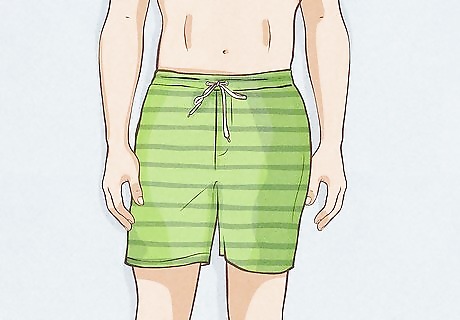
Choose board shorts if you are tall and thin. If you are taller than 6’ (182 cm) and slender, select board shorts. The inseam should not be longer than 8’’ (20 cm). Board shorts that are too long will make you look youthful and sloppy. Tall, thin people should avoid investing in briefs. Avoid vertical stripes if you’re tall and thin. Vertical stripes will accentuate your height and slender frame. Choose horizontal stripes or some other pattern altogether.
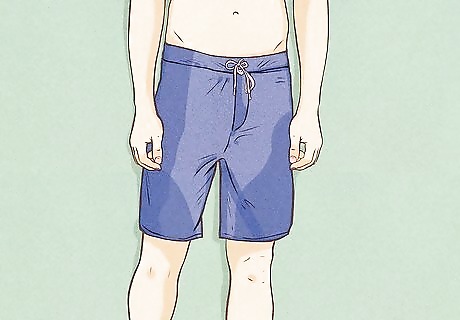
Buy board shorts if you're big and tall. If you are overweight and tall, board shorts (preferably in a longer, darker color) will be your best bet. You might also be able to get away with tie-waist trunks that end just above the knee. Choose a dark color. Black, for instance, is slimming. Dark green or blue could work, too. Avoid prints and elastic waists.
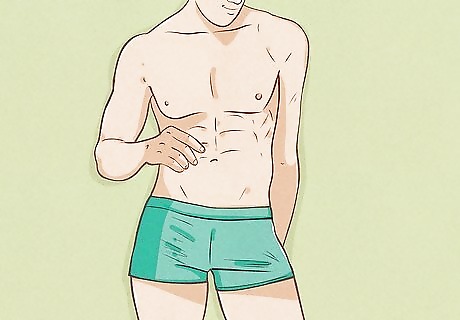
Stick to trunks or boxers if you’re short and buff. If you are short but have a chiseled build, you should go for a swimsuit with a shorter inseam to make you look taller. Avoid swimsuits with an inseam of more than 6’’ (15 cm).
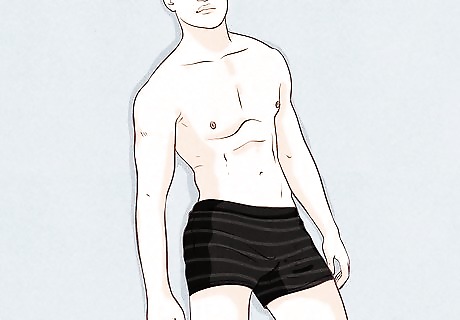
Pick slim board shorts or trunks if you're short and thin. A short, slim swimsuit will prevent your legs from being swallowed by the fabric. Select a pattern with dark horizontal stripes to add a sense of dimension to your body. Avoid bold patterns if you're short and thin. Use microprints or stripes that don't sharply contrast instead.
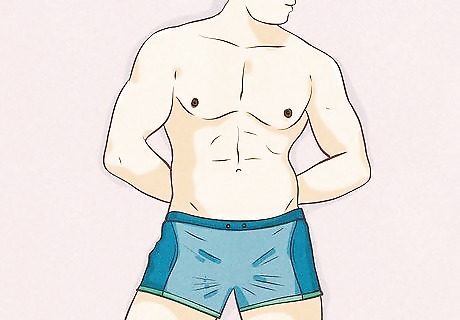
Wear whatever you wish if you are tall and buff. If you are 6' (182 cm) or taller and have a firm, muscular body, everything will look good on you. Choose any pattern, color, and style of swimsuit you like.
Choosing a Suit Based on Usage
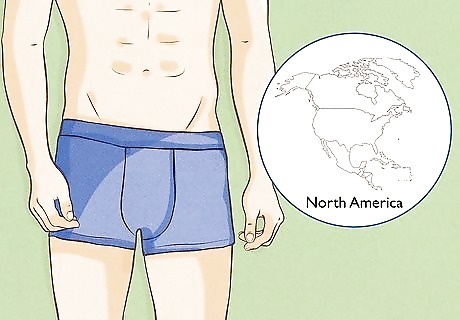
Choose trunks. In North America, trunks are the most common type of swimsuit. The length can vary widely – some end halfway between the hips and knee, other end just above the knee. They look like regular shorts but are made of quick-drying materials (usually polyester or nylon).
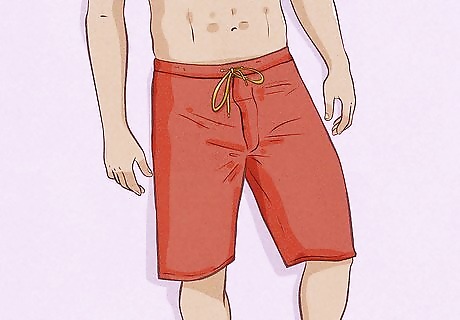
Buy some board shorts. Board shorts are basically long trunks. They tend to reach the knee or even extend just beyond it, and are a common beachside swimsuit style. If you just want to hang out on the beach or go for a casual swim, board shorts are an acceptable choice. They are also favored by surfers and beach sportsmen who don't do a lot of swimming. They feature long, wide legs and look best on tall, thin men.
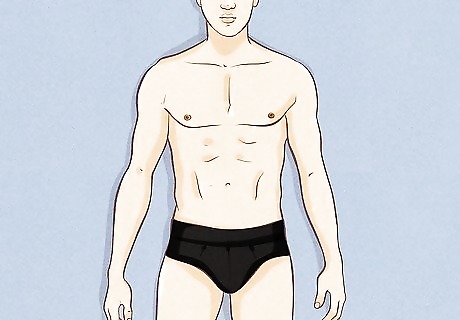
Select racers or briefs. This is the most common type of men's lap swimming suit. If you intend to do some serious competitive swimming, this is the best option. They provide minimal coverage to decrease drag and offer a full range of motion. This type of lap swimming suit is often referred to as a Speedo, but Speedo is just the brand name most commonly associated with this style. Shorter swimsuits are a great way to show off your physique.
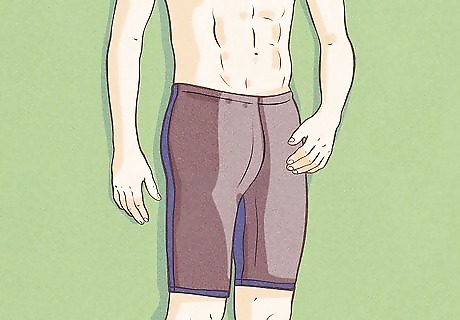
Pick jammers. Jammers are basically long briefs. They resemble bike shorts and usually end at the middle of the thigh, about one to five inches (3 to 13 cm) above the knee. They provide more coverage than a racer or brief style. They're best worn during practice or when racing. Jammers are perfect for beginning swimmers because they're especially easy to swim in. If your jammers are too tight, they might restrict movement when treading water or performing the breaststroke. While you should try any swimsuit on before you buy it, this is especially true in the case of jammers.
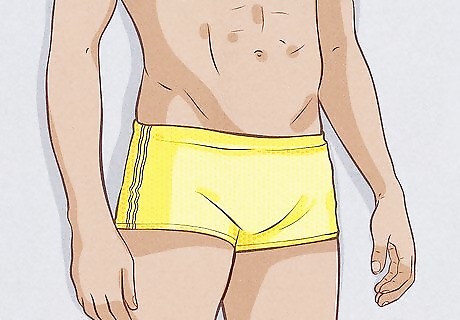
Opt for a drag suit. Drag suits are mesh briefs. As their name suggests, they create drag as you move. Drag suits are good for training and can be worn alone or over briefs. They should not be worn during races, however.
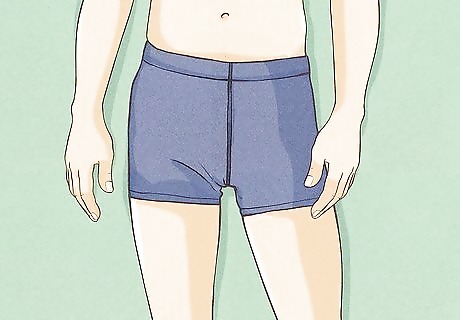
Choose a square leg. A square leg suit is a bit longer than briefs, but is considered more fashionable. They can be worn during swimming practice or during races. Square leg swimsuits are also favored by beach volleyball players.
Selecting Your Fabric
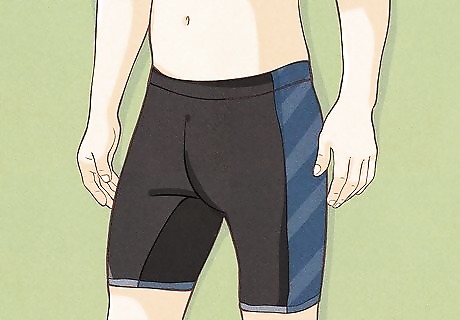
Choose a suit made of Lycra or spandex. Spandex or Lycra suits stretch more than other fabrics. These are best for serious swimming competitions. Unfortunately, spandex and Lycra suits also tend to fade and loosen quickly compared to those of other materials.
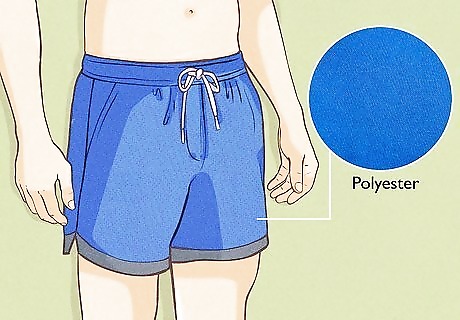
Pick a suit of polyester. Polyester swimsuits are known to be long-lasting and chlorine resistant. They are considered a reasonable alternative to spandex or Lycra suits. They are also quick-drying, easy to launder, comfortable and soft, and breathable.
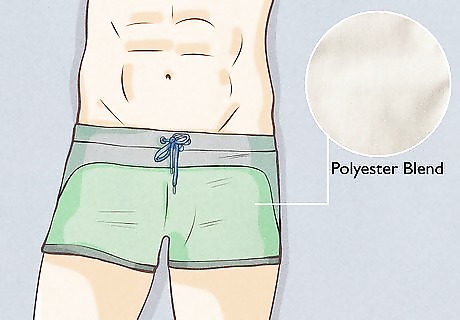
Select a suit made with a polyester blend. Polyester blends combine polyester and some other material in a hybrid material. The most common – polyester PBT – is similar to Lycra. Polyester blends are often lightweight, fast-drying, durable, chlorine resistant, and have a handsome matte finish.
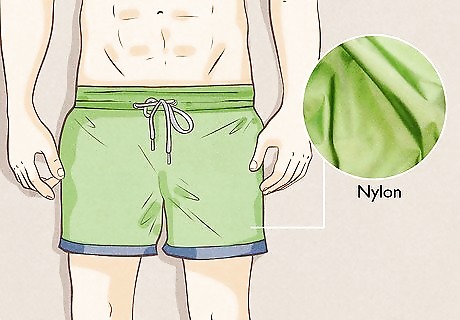
Obtain a nylon swimsuit. Nylon is lightweight and popular for offering a smooth fit. They are also easy to launder, soft and abrasion-resistant, and have a low moisture absorbency. Nylon swimsuits have a few significant disadvantages. They are not chlorine resistant, nor are they as durable as polyester suits.
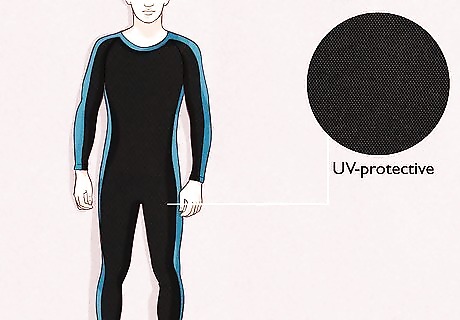
Buy a suit made with UV-protective material if you'll be swimming outside. A men's swimsuit with a high UV rating will protect you from harmful ultraviolet light that can damage the skin and eyes. If you plan on doing most of your swimming outdoors, a check the tags for a UV or UPF rating of 50 or above.










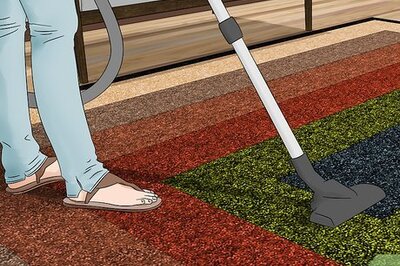








Comments
0 comment